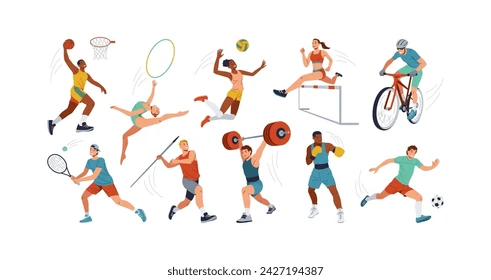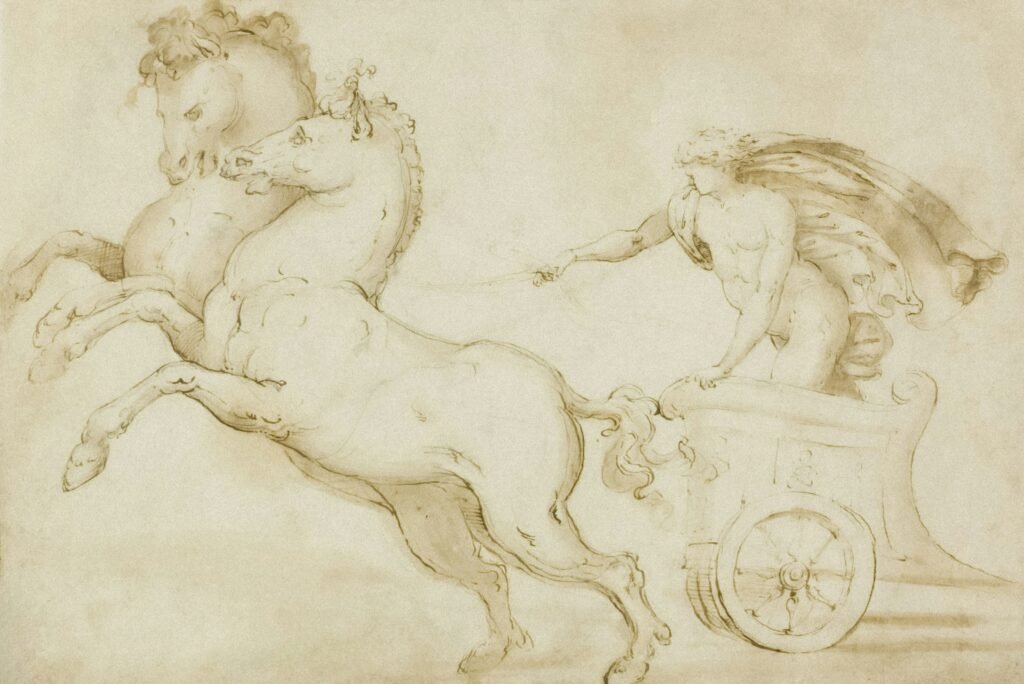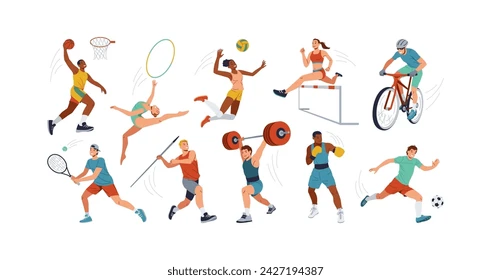The Incredible History of Sports: From Ancient Games to Global Phenomenon
Meta Description: Explore the incredible history of sports, from ancient games to today’s global competitions. Discover how sports unite cultures, promote peace, and inspire generations.
URL Suggestion: www.yoursite.com/history-of-sports

History of Sports
For millennia, the history of sports has transcended language and culture, forging a universal human bond. As Nelson Mandela observed, “Sports is a universal language that brings people together” (riotimesonline.com).
This idea resonates in stadiums around the world: when people cheer for a team or athlete, national and linguistic differences often fade. From the ancient Olympic stadia to modern global arenas and even smartphone screens, the passion and rituals of sports create shared experiences.
Indeed, the global sports industry is enormous – with an estimated $750+ billion in annual revenue (riotimesonline.com) – yet its cultural impact goes beyond economics. This article explores how competitive games have evolved from sacred festivals in antiquity to a modern media phenomenon, highlighting how athletics have remained a common thread uniting humanity.

History of Sports in Ancient Greece
- Religious and Civic Role: Athletic contests were deeply integrated into religious festivals and civic life.
- Olympic Origins:
- The first Olympic Games were held in 776 B.C. at Olympia to honor Zeus.
- Participation was limited to free Greek males. (Source: nbc.com)
- Popular Events:
- Stadion (foot race), long jump, javelin throw, discus throw, wrestling, boxing, and pentathlon.
- Mixed martial art pankration (boxing + wrestling) was also practiced.
- “The Games featured foot races, jumping, discus throwing, javelin throwing, wrestling, [the] pentathlon… and [boxing].” (Source: metmuseum.org)
- Cultural Significance:
- Victors were honored as heroes.
- The Games promoted a sacred truce (ekecheiria) allowing peaceful travel.
- Myths linked athletes to gods – e.g., Herakles (Hercules) was believed to have founded the Olympics. (Source: metmuseum.org)

The Roman Era – Expanding the History of Sports
- Greek Influence: Romans adopted and transformed Greek athletic ideals.
- Spectacle and Entertainment:
- Focus shifted to grand public spectacles.
- Popular Roman sports included chariot racing, hand-to-hand combat, and ball games. (Source: unrv.com)
- Famous Venues:
- Circus Maximus (held 150,000 spectators) hosted thrilling chariot races.
- Gladiator fights and animal hunts took place in the Colosseum.
- Political Role:
- Emperors used games to gain public favor.
- Spectacles played an “integral role in social and political life,” uniting citizens through shared entertainment. (Source: unrv.com)

From unsplash.com
This is a sketch, which depicts the scene of chariot races. Chariot is the horse which is tied with a buggy on which a person rider stands. There are diiferent sports on only this particular thing in which races, clashes between chariot fighters are included. These chariot are also used in war which is achieved by equipping the rider with a spear or a bow with arrows. In my point of view these chariots are the real game changer in the history of games as well as war.
The History of Sports in Ancient India
- Vedic Roots:
- Sports in India date back to the Vedic era, with physical training tied to religious practices. (Source: journalofsports.com)
- Traditional Games:
- Kabaddi originated as a simple team game for strength and agility.
- It may have roots in prehistoric times and is mentioned in the Mahabharata. (Source: britannica.com)
- Educational Role:
- Students in gurukuls (Vedic schools) played sports like kabaddi, wrestling, running, and archery.
- These activities emphasized martial preparation, discipline, and teamwork.
The Global Legacy of Early Sports
The history of sports across Greece, Rome, and India reflects each culture’s spiritual values, political systems, and educational goals. These early athletic traditions laid the foundation for many modern sports and the values we recognize today.
Modern Developments in the History of Sports
Revival of the Olympics (1896)
The modern Olympic Games were resurrected in Athens in 1896, marking a new era in the history of sports. The Panathenaic Stadium hosted 241 athletes from 14 nations in 43 events (sportsmed.org), promoting the ideal of unity through competition.
Global Competitions
In the 20th century, new international tournaments like the FIFA World Cup (first held in 1930) and the Cricket World Cup emerged. The Olympics expanded to include summer and winter editions.

You can also read about Olympic
Professional Leagues and Codification
Sports were standardized and professionalized:
- Football, baseball, basketball, and cricket developed formal rules and global leagues.
- NFL, NBA, and the English Premier League turned regional games into global events.
Broadcasting and Media Evolution
Radio and TV allowed fans to experience historic sports moments remotely. Today, fans can stream events online anytime, making fandom a 24/7 experience.
Digital Streaming and Fan Behavior
Fans subscribe to league apps or local networks (e.g., Bally Sports South streaming) or sometimes turn to unauthorized sources (“Crack Streams Sport”) or Reddit forums. Despite anti-piracy efforts (streamsafely.com), demand remains strong.
Cultural Impact and the Continued History of Sports
The history of sports reflects more than games – it mirrors human connection, diplomacy, and change.
Events like the FIFA World Cup and Winter Olympics unite people across backgrounds. “One ball, one world,” says riotimesonline.com.
International Unity
Events like the FIFA World Cup and Winter Olympics unite people across backgrounds. “One ball, one world,” says riotimesonline.com.
Peace and Diplomacy
- The Olympic truce enabled peaceful travel in ancient Greece. (metmuseum.org)
- In 1971, ping-pong diplomacy helped thaw U.S.-China tensions. (diplomacy.state.gov)
Cultural Exchange and Grassroots Unity
- Athletes bring sports abroad.
- Local fans adopt new games (e.g., soccer in African and Asian schools).
- Stories like American coaches in Rwanda show how sports unite without language barriers. (kent.edu)
Social Change
- Athletes protest racism (e.g., English Premier League kneeling gesture). (riotimesonline.com)
- Sports build local economies and identities (e.g., football academies in Brazil).
Conclusion – The Timeless Power of the History of Sports
From the footraces of Olympia to today’s billion-viewer broadcasts, the history of sports is a shared human heritage. While formats have evolved, the spirit of competition and teamwork endures. Across time and culture, sports continue to inspire, unite, and reflect the values of each generation.
As Mandela said, sports truly speak a language all their own.
Sources: nbc.com, metmuseum.org, unrv.com, journalofsports.com, britannica.com, riotimesonline.com, sportsmed.org, streamsafely.com, diplomacy.state.gov, kent.edu

Pingback: A Brief History of the Olympic Games - Sportsblogin
Good
Pingback: How Football Conquered the World - Sportsblogin
Pingback: Cricket’s Incredible Journey: From Empire Sport to Global Phenomenon - Sportsblogin
Pingback: NIL Is Changing College Sports
Pingback: Technology in Modern Sports
Pingback: Volleyball